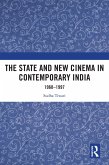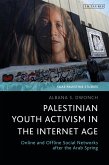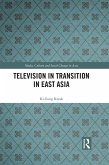Does the internet facilitate social and political change, or even democratization, in the Middle East? Despite existing research on this subject, there is still no consensus on the importance of social media and online platforms, or on how we are to understand their influence. This book provides empirical analysis of the day-to-day use of online platforms by activists in Egypt and Kuwait. The research evaluates the importance of online platforms for effecting change and establishes a specific framework for doing so. Egypt and Kuwait were chosen because, since the mid-2000s, they have been the most prominent Arab countries in terms of online and offline activism. In the context of Kuwait, Jon Nordenson examines the oppositional youth groups who fought for a constitutional, democratic monarchy in the emirate. In Egypt, focus surrounds the groups and organizations working against sexual violence and sexual harassment. Online Activism in the Middle East shows how and why online platforms are used by activists and identifies the crucial features of successful online campaigns.
Egypt and Kuwait are revealed to be authoritarian contexts but where the challenges and possibilities faced by activists are quite different. The comparative nature of this research therefore exposes the context-specific usage of online platforms, separating this from the more general features of online activism. Nordenson demonstrates the power of online activism to create an essential 'counterpublic' that can challenge an authoritarian state and enable excluded groups to fight in ways that are far more difficult to suppress than a demonstration.
Egypt and Kuwait are revealed to be authoritarian contexts but where the challenges and possibilities faced by activists are quite different. The comparative nature of this research therefore exposes the context-specific usage of online platforms, separating this from the more general features of online activism. Nordenson demonstrates the power of online activism to create an essential 'counterpublic' that can challenge an authoritarian state and enable excluded groups to fight in ways that are far more difficult to suppress than a demonstration.









